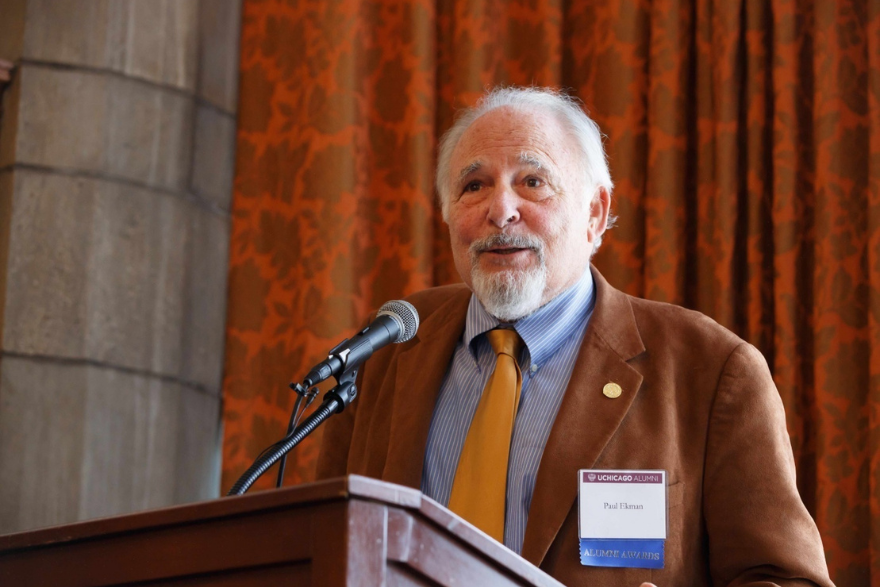Using Emotional Data to Improve Decisions
Leaders make decisions all day. Some of these decisions are strategic and carry significant...
By: Maddie Senarath 26 November 2025

Dr Paul Ekman’s passing marks a profound moment for psychology and for everyone inspired by his dedication to understanding human emotion. Across more than sixty years, Dr Ekman reshaped the scientific landscape through rigorous research, global fieldwork, and practical tools that strengthened emotional awareness and compassion. His legacy continues to guide leaders, educators, researchers, and wellbeing practitioners around the world.
Dr. Ekman's initial research focused on how universal facial expressions reveal shared emotional experiences across cultures. This research, conducted in laboratories and remote locations, provided compelling evidence for universal emotional signals. It strengthened the scientific foundations of modern emotional intelligence and provided a better understanding of how people express and communicate their emotions.
He provided practitioners and researchers with a precise language for reading the human face by developing the Facial Action Coding System (FACS) and Micro Expression Training Tools. These contributions advanced psychology, anthropology, education, leadership, and a wide range of applied fields.
Dr. Ekman's collaborations grew into global conversations about empathy and ethics. His long relationship with His Holiness the Dalai Lama influenced his work, which combined scientific insight with a strong commitment to human compassion. He co-created the Atlas of Emotions and Cultivating Emotional Balance with his daughter, Dr Eve Ekman, to provide people with practical ways to develop emotional skills that improve their personal and interpersonal wellbeing.
Several findings revealed the significant influence of his work:
Eighty-eight percent of scientists agreed that there is compelling evidence for universal emotions. Among them, 80% cited strong evidence for universal facial and vocal signals. This supported decades of Ekman-driven cross-cultural research (Ekman & Friesen, 1969).
Scientists reached broad consensus on five core emotions: anger, fear, disgust, sadness, and happiness. These were consistent with Darwin's initial proposals and the empirical foundations laid by Ekman and colleagues.
More than half of respondents agreed that modular (discrete) and dimensional models of emotion are useful. This reflected Ekman's belief that multiple scientific lenses can improve emotional understanding
The majority of scientists agreed that there are links between specific emotions and patterns in mood, personality traits, and emotional disorder. These associations aided the growing integration of emotional science, mental health, and well-being.
Dr. Ekman's article demonstrated a high level of scientific agreement. His influence contributed to a more unified understanding of emotion by advancing shared language, validated models, and rigorous frameworks that continue to elevate the field today.
Dr Eve Ekman leads the Paul Ekman Group, which continues to carry on his legacy. Their mission remains to increase emotional awareness, empathy, and compassion through evidence-based education. Dr. Ekman's legacy strengthens the everyday practice of people leaders, coaches, educators, and wellness professionals who rely on high-quality science to effect real-world change.
His contributions reshaped how the world perceives emotion, connection, and compassion. His family, colleagues, and the global community continue to honour his vision by promoting greater awareness, empathy, and humanity in everyday life. His legacy serves as a powerful reminder that emotional understanding can spark meaningful change in workplaces, schools, and communities.
Explore how our science-backed courses and tools can support you or your team to flourish. Whether you are starting your journey or deepening your expertise, Langley Group is here to help you thrive.
👉 Discover our upcoming programs
📩 Subscribe to our newsletter for practical tips and the latest research
🔗 Contact us to talk about what's possible for you or your organisation
Let's create positive change - together!
Leaders make decisions all day. Some of these decisions are strategic and carry significant...
Many leaders can describe what their team members do. Strong leaders also name what gives each...